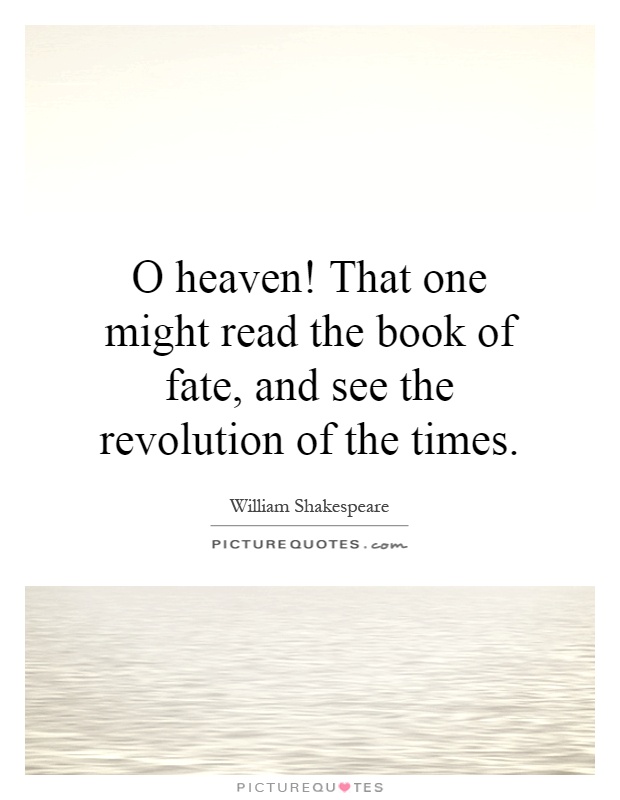O heaven! That one might read the book of fate, and see the revolution of the times

O heaven! That one might read the book of fate, and see the revolution of the times
In William Shakespeare's works, the concept of fate and the idea of a predetermined future are recurring themes that are explored in depth. The quote "O heaven! That one might read the book of fate, and see the revolution of the times" reflects the desire for knowledge and understanding of the events that shape our lives and the world around us.Throughout Shakespeare's plays, characters often grapple with the idea of fate and whether their actions are predetermined or if they have the power to change their own destinies. In plays such as "Macbeth" and "Romeo and Juliet," the characters struggle with the idea of fate and the consequences of their actions. Macbeth, for example, is driven by a prophecy that he will become king, leading him to commit murder and ultimately seal his own fate. Similarly, Romeo and Juliet's tragic love story is plagued by the belief that their love is doomed from the start.
The quote also speaks to the idea of the "revolution of the times," suggesting that the world is constantly changing and evolving. Shakespeare's plays often reflect the political and social upheaval of his time, with themes of power, betrayal, and ambition playing out on the stage. The quote can be interpreted as a desire to understand the forces that drive these revolutions and the impact they have on individuals and society as a whole.












 Friendship Quotes
Friendship Quotes Love Quotes
Love Quotes Life Quotes
Life Quotes Funny Quotes
Funny Quotes Motivational Quotes
Motivational Quotes Inspirational Quotes
Inspirational Quotes